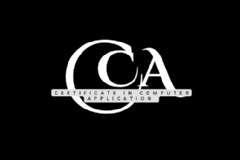1. General Audience – Hands-on Kubernetes Training
This Kubernetes training is designed for professionals seeking practical knowledge of container orchestration. It starts with the basics of containers and Docker, then progresses into Kubernetes architecture, Pods, ReplicaSets, Deployments, Services, ConfigMaps, and Secrets. Learners will set up their own clusters using Minikube or kubeadm and practice real-world deployment scenarios.
The course includes hands-on labs focused on managing stateful/stateless apps, scaling deployments, handling rolling updates, and debugging pod failures. We’ll also cover essential tools like kubectl, Helm for packaging, and Ingress for routing.
By the end of this course, attendees will have strong foundational knowledge and the skills to manage Kubernetes clusters confidently, whether in development or production environments.
2. Corporate/Enterprise-Focused Kubernetes Training
This corporate-focused Kubernetes training is tailored for IT teams adopting or scaling Kubernetes in their infrastructure. The course blends theory and hands-on labs to teach cluster setup, resource management, auto-scaling, monitoring, and CI/CD pipeline integration.
Attendees will learn about Kubernetes architecture, networking, RBAC security, and production best practices. The sessions also include Helm chart packaging, Ingress controllers, node affinity, and persistent storage provisioning.
The training is scenario-based and emphasizes solving real operational problems. It is ideal for DevOps engineers, platform teams, and backend developers looking to build expertise in cloud-native technologies.
3. Beginner-Friendly Kubernetes Bootcamp
This beginner-friendly Kubernetes bootcamp introduces learners to the world of container orchestration in a simple and hands-on way. Starting from the basics of Docker and containers, the course guides participants through key Kubernetes concepts like Pods, Deployments, and Services.
Through interactive examples, learners will build and deploy containerized apps, monitor workloads, and handle updates. The training includes setting up a local cluster, using kubectl, and exploring the dashboard UI for better understanding.
Designed for students, freshers, and junior developers, this course builds confidence in working with Kubernetes while laying a strong foundation for advanced topics like Helm, Ingress, and CI/CD workflows.







